The COVID-19 outbreak has turned the world upside down. Many people equated the situation with the great depression of 1929 when food was scarce, income went down, and millions of jobs were lost! From remote working with contingent staffing and transforming themselves digitally, organizations had to test and deploy new operating models to motivate their employees, remain operational and meet the expectations of their customers. HR tech came to the rescue for many and enterprises that accelerated digital transformation initiatives were better prepared to tackle the challenges. (See: How is digital transformation shaping the new future?).
The COVID-19 pandemic taught us new learnings and highlighted the significance of social interaction and humanity within almost every aspect of our lives.
Top HR and tech leaders, educationists, and talent stalwarts recently came together in a virtual-reality-based conference titled ‘Lessons Learnt from Crisis to Design the Future’ to deliberate on the challenges posed by the pandemic and discuss leadership innovations that can ensure a more robust roadmap for the future.
Vinay Ranjan, Director (Personnel), Central Coalfield Limited (CCL), a subsidiary of Coal India Limited.
“The pandemic has once again demonstrated the importance of adaption to survive. There will be a lot of changes during and after the pandemic. How you react to the situation will enable the best way to capitalize from the new realities”
Rohit Thakur, Group Chief Human Resources Officer, Paytm.
“At an organizational level, we had started our preparations after hearing about the COVID-19 situation in the other parts of the world. We keenly followed government advisories and ensured we are taking proactive measures to safeguard the health and well-being of our people.”
Guramrita Oberoi, Founder, Just Be
“Last year, buying behaviors of corporate L&D functions shifted dramatically. We realized Social distancing is making L&D leaders search for alternatives and rethink how they can develop and train people and create and strengthen organizational capabilities and culture when we simply cannot get together in person. We started to realize engaging a virtual audience is quite different from presenting in-person. And not only did we need to adapt and upscale ourselves, but we also needed to find a way to fill the gap in immersive experiential engagements online.”
Better World was the exclusive research and media partner for this virtual HR tech conclave.
The VR-based conference was organized by More Than HR Global (MTHR), a Mumbai-based pan-India Knowledge Community in association with Beyond Reality Events (BRE), a VR initiative of Just Be, an integrated people solutions provider. BRE’s core team comprises Guramrita Oberoi (Founder), Kanishk Malick (Co-Founder), and Kartik Sachdev (Advisor).
The discussion panel at the event included: Anil Dhanker, senior HR management professional; Dr. Aquil Basrai, Independent HR Consultant and Former President of National HRD Network; Bhavesh Chandaria, Group Africa Head, Training, and Development, SAFAL; Debi Prasad, CEO at Potential Infinity, a People Consulting & Research firm; Gyan Nagpal, Dean of AIA Leadership Center (ALC); Rohit Thakur, Group Chief Human Resources Officer, Paytm; Sukumaran Mariappan, Vice President – Global Transformation & People Analytics, Trimble Inc; Tanaya Mishra, Head of Human Resources, Essar Projects Limited; Sunita Rao, Independent Senior Talent Leader; Prof. Vasanthi Srinivasan, Professor, Indian Institute of Management, Bangalore and Vinay Ranjan, Director (Personnel), Central Coalfield Limited (CCL), a subsidiary of Coal India Limited.
New challenges in uncertain times
One of the most extensive tests that many HR and tech leaders faced during the outbreak was a lack of experience in dealing with such an unprecedented crisis. While leaders who were able to reinvent themselves through transformative strategies navigated their organizations through the disruption, others who failed to design a solid action plan could barely endure the crisis.
During the session, the panelists touched upon the numerous facets of how COVID-19 and unprecedented lockdowns impacted HR and related techs and processes. Intelligent enterprises took the route of digital transformation and emphasized making decisions that serve their people’s and businesses’ long-term interests while sidelining short-term lucrative steps.
Accelerating digital transformation helped many enterprises navigate the uncharted waters of COVID-19. “While the pandemic was quite dramatic and shocking, technology and variety of media enabled us to collaborate and kept our social capital alive with the people that mattered – professionally or personally. The pandemic compelled us to pause, contemplate, and appreciate the little things we often take for granted.” Gyan Nagpal, Dean of AIA Leadership Center (ALC).
In the social distancing age, technology is playing a crucial role in connecting and engaging people. The event itself was hosted on an innovative VR based platform, bridging the digital and physical worlds.
Echoing similar sentiments, Sukumaran Mariappan, Vice President – Global Transformation & People Analytics, Trimble Inc, said, “We often accuse technology as a reason to separate us and make us less social, but during the outbreak, technology brought us together. It even enabled us to learn something new and collaborate effectively in the times of crisis.”
At a personal level, the crises posed an unprecedented challenge for individuals. Many participants shared that the months of uncertainty and fear amplified the importance of the human connect’ aspect like never before. Companies like Paytm started preparing for the crisis timely after keeping a closer tab on international developments.
“At an organizational level, we had started our preparations after hearing about the COVID-19 situation in the other parts of the world. We keenly followed government advisories and ensured we are taking proactive measures to safeguard our people’s health and well-being. Nevertheless, we learned many new things while coping up with the pandemic. Following protocols as they were announced, then 100% of employees working from home consistently and trying to do that, engaging them, reducing panic, motivating them was a completely new challenge,” said Rohit Thakur, Group Chief Human Resources Officer, Paytm.
A winning strategy
The panelists at the event discussed the importance of adaptability to survive in a crisis. While adaptability was a crucial attribute even before the pandemic, Covid-19 made it a must-have skillset to survive. Within the months of the pandemic, we adjusted to living our lives very differently. Those organizations who adapted well (using HR tech) during the crisis not only survived but also made a substantial leap.
“Coal comes under essential services and is important for the energy security of India. So, for us, lockdown had never implemented. Like several other companies in our sector, we were poorly prepared to tackle sudden technological changes, such as moving from physical to virtual meetings. Nevertheless, our people exhibited great resilience and adjusted to the new normal very fast. The leadership at Coal India also set strong examples and took actions that reflect wider care and empathy,” said Vinay Ranjan, Director (Personnel), Central Coalfield Limited (CCL), a subsidiary of Coal India Limited.
Not surprisingly, the emphatic and caring policies of CCL did wonders for its production capabilities as its workforce responded to the pandemic bravely.
Gyan Nagpal, Dean of AIA Leadership Center (ALC).
“The pandemic compelled us to pause, contemplate, and appreciate the little things we often take for granted.”
Prof. Vasanthi Srinivasan, Professor, Indian Institute of Management, Bangalore.
“We all must remember it’s the collaboration, whether, in terms of vaccines or humanity coming together, that has made it possible for us to where we are today. We all need to think about making a better world by leveraging our capabilities and using technology wisely. We need to ensure such crisis doesn’t happen again or be better managed.”
Bhavesh Chandaria, Group Africa Head, Training, and Development, SAFAL.
“We need to be ready for the future uncertainty by taking a break from things that we take for granted.”
About MTHR Global
Mumbai-based MTHR Global (More Than HR Global), a leading Knowledge Community Pan India since 2002, is a not-for-profit body that continues to bring the best in Learning and Networking! MTHR Global is a community that grew to over 15000 members within ten years across India and in a few other countries across the world.
About Beyond Reality Events
BR Events is a virtual reality offering by Just Be. Under BRE, the company provides immersive and interactive experiences for its clients — from layout to branding, bringing the real world into 3D.
During the COVID-19, the coal stock at its thermal power plant rose to the highest ever inventory of about 46 days compared to the average supply of 20-22 days, demonstrating exceptional results for companies who made their employees feel heard and included the COVID-19 crisis.
The session panelists also delved deeper into the hard-earned lessons for the future from the current crisis. The senior HR and tech leaders shared the importance of acting fast, cross-training employees, and eliminating overdependencies.
“I think we need to detox from overdependence. The new crisis response cannot be designed from the viewpoint of COVID. It could be an internet or electricity outage. We need to be ready for the future uncertainty by taking a break from things that we take for granted,” said Bhavesh Chandaria, Group Africa Head, Training, and Development, SAFAL.
“For instance, many countries keep a car-free day in a month. Why can’t we plan things and embed such things into our design, say an electricity and internet free half-day a month? This is essential so that our today’s generation does not assume and completely dependent upon such things. We need to learn to live without the obvious,” Chandaria explicated.
Final thoughts
The industry experts also outlined the importance of collaboration and using technological innovations wisely to create a better and sustainable future. At various levels, everyone emphasized the importance of empathy toward those who surround us, developing hyper skills, exploring multiple ways to approach a particular challenge at an individual and organizational level.




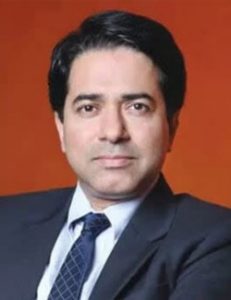


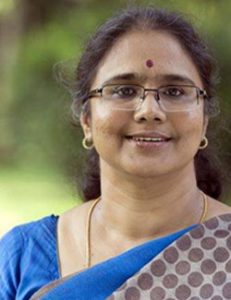
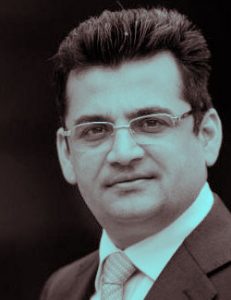

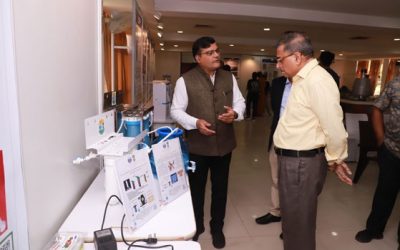

 The exhibition is covering technologies developed by the Bhabha Atomic Research Centre (BARC), Raja Ramanna Centre for Advance Technology, Indore and other Units of Department of Atomic Energy (DAE), which are useful for the common man in day-to-day life, e.g., in the field of health, agriculture, water, food security and environment, said a PIB release.
The exhibition is covering technologies developed by the Bhabha Atomic Research Centre (BARC), Raja Ramanna Centre for Advance Technology, Indore and other Units of Department of Atomic Energy (DAE), which are useful for the common man in day-to-day life, e.g., in the field of health, agriculture, water, food security and environment, said a PIB release.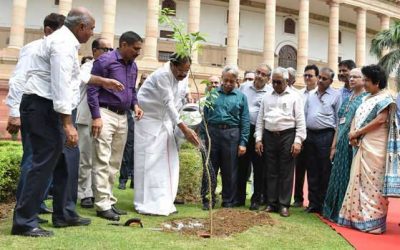
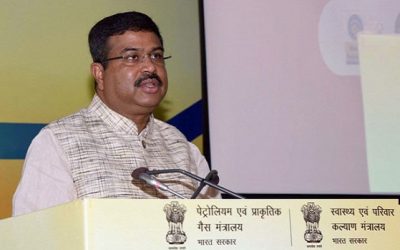


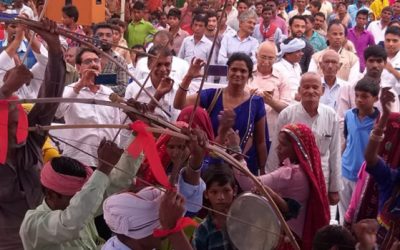



0 Comments